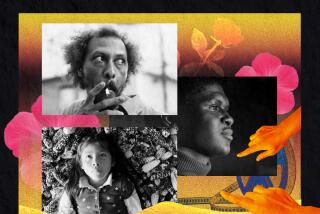Lino Brocka; Filmmaker and Activist
- Share via
Lino Brocka, a Filipino filmmaker and human rights activist, died Wednesday when his car struck a utility pole in Manila. He was 52.
Jailed briefly by the late Phillipines President Ferdinand E. Marcos, Brocka was named by President Corazon Aquino to a 45-member commission charged with drafting a new constitution for her revolutionary government.
Despite that association, Brocka made internationally popular films citing social ills that continued after Aquino came to power in 1986.
Brocka became widely known in Los Angeles in 1989 when his film “Macho Dancer” was first shown in a non-ethnic theater. A documentary by Christian Blackwood about the controversial homosexual director, “Signed: Lino Brocka,” was also screened here.
Brocka’s film about male go-go dancing and prostitution contributed to his status as a major Third World director overdue for international recognition. He created more than 50 films over two decades.
Born in a small town in the Phillipines, Brocka dropped out of college in moral outrage when he discovered that his bills were being paid by his mother’s lover. He spent two years as a Mormon missionary in Hawaii’s Molokai leper colony.
Brocka worked his way up in theater, splitting his time between commercial soap operas and films of personal interest. The latter dealt increasingly with the troubled lives of homosexuals in the conservative, heavily Catholic Phillipines.
When Brocka made films in the early 1980s illustrating the plight of the poor, Imelda Marcos criticized him for not projecting the “right image” of the Phillipines. He was once jailed for his protests against her husband’s government.
Brocka claimed in his films and in his protest activities that up to 80% of his countrymen were living below the poverty line. He publicly urged the Catholic Church to stop encouraging the poor to accept suffering as their inevitable fate.
Although Brocka helped write the constitution enacted by Aquino’s government, he continued to endure government censorship.
More to Read
Only good movies
Get the Indie Focus newsletter, Mark Olsen's weekly guide to the world of cinema.
You may occasionally receive promotional content from the Los Angeles Times.










